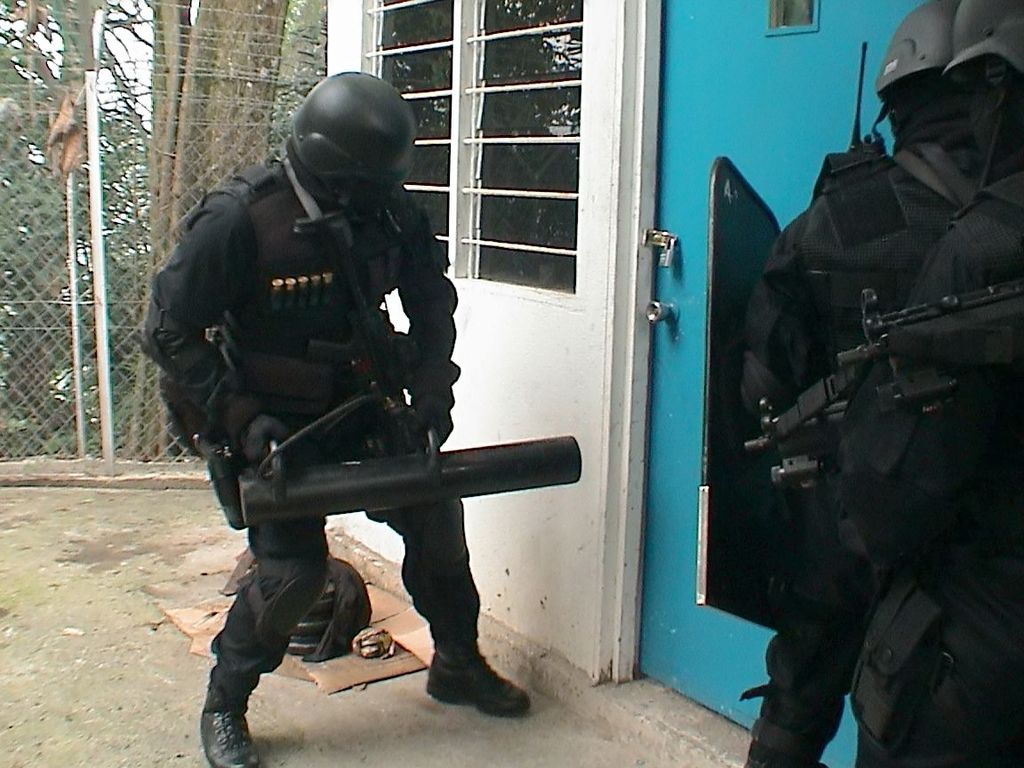Headlines
Are Chicago Judges Signing Off on Bad Search Warrants?

Imagine being at home with loved ones, when suddenly the front door crashes open and people come raiding into the house. There is no warning — no idea what is happening. Imagine the pure fear Chicagoans experience when this happens. According to CBS’s report on Nov. 17, 2020, this has occurred uncountable times all over Chicago.
For Mary Ann Sparr this nightmare was a reality. She was at home with her two children when Chicago Police officers burst in through her door. Sparr relayed her conflicting emotions to CBS.
I didn’t know if they were police officers or if they were somebody just ambushing my house to rob me.
How The Police Department Terrorized a Chicago Family
This incident occurred on Feb. 3, 2018. According to the search warrant, officers were looking for a suspected drug dealer and cocaine. Officers obtained a tip from a confidential informant saying that Sparr’s home was actually the drug dealer’s house.
As authorities search her home they destroyed the family’s belongings. However, Sparr said the way the officers treated her and her family was atrocious. Sparr’s 16-year-old son was asleep in his bed when officers raided their house. One officer woke up the 16-year-old by jumping onto his bed and put a gun to the teen’s head.
Sparr further stated the officer spoke to her son in a hostile manner. She stated the officer told her son,”‘Don’t you move. I’ll shoot you in your f****** head.'” She then told CBS that another officer looked at her and said:
‘Shut your f****** face b**** before I handcuff you and slam your face to the floor.’
To top off the horrible experience officers busted in on her disabled daughter as she was stepping out of the bathtub. Of course, the daughter was naked at the time. Sparr stated that her daughter no longer feels safe in their home.
Chicago authorities were not able to find any cocaine, nor did they arrest anyone.
What the Chicago CBS Station Discovered
The local CBS station found dozens of victims of lousy search warrants. There are numerous people involved in issuing a search warrant. Due to all the layers, it is hard to place the blame on just one person or facility. Unfortunately, a chain is only as strong as its weakest link.
In the Sparr case, it has become clear that the Chicago Police Department failed to verify the information the confidential informant gave them. That being said a judge still signed off on the search warrant. This makes people wonder how often this situation actually happens.
No matter what the reason is behind the police seeking a search warrant, they still must prove probable cause for entering a home or office. On many occasions, officers receive their tips from confidential informants. Some informants are paid for their information.
The police are then subjugated to investigate the tips they receive. This means they conduct surveillance and background checks on their subject. Afterwhich they seek approval from a supervisor and an assistant state’s attorney.
 How Search Warrants Are Produced
How Search Warrants Are Produced
Then the Chicago officers present their investigation in the form of a complaint to a judge for a search warrant. In the documents that are presented to the judge, officers outline everything they have done to confirm the tips they receive. If the judge feels a search warrant is needed they will sign off on it.
Unfortunately many times a judge will sign a search warrant despite the holes in the officer’s evidence. Especially in cases where officers are looking for illegal drugs. However, on that note, the Chicago Police Department has an extremely low rate in actually finding illegal drugs during their searches.
In the Sparr case, Officer Baneond Chinchilla — lead officer — presented the evidence to then-Judge Mauricio Araujo. According to Chincilla, a confidential informant told him that they had purchased cocaine from a person in the Sparr household.
The informant told Chincilla that they had purchased the drugs on numerous occasions from the suspect. The officer then searched for the subject’s name in the department’s Data Warehouse system. The informant confirmed the suspect’s identity.
Then the informant brought Chincilla to the home where they claimed they had purchased the drugs. According to CBS, the complaint that the Chicago Police department submitted failed to indicate whether or not they investigated the information the informant supplied.
Other Victims in Chicago
During their investigation, CBS found there are numerous judges who signed off on search warrants without formal investigations being performed. Their investigation shows this has been an issue for many years.
In 2017, Attorney Al Hofeld Jr. sued the city of Chicago for traumatizing the Mendez family in a similar raid. In this case, officers allegedly pointed their guns at them.
As these cases become more frequent, Chicagoans and others are concerned about their safety.
Written by Sheena Robertson
Sources:
CBSN Chicago: Chicago Police Raids Rarely Turn Up Drugs. So Why Do Judges Keep Signing Off On Bad Search Warrants?; Dave Savini, Michele Youngerman, Samah Assad, Christopher Hacker
WGN TV: Family suing Chicago Police Department after they say cops wrongfully raided their Back of the Yards home; Kelly Davis
CBS 2: Another Family Files Lawsuit After Chicago Police Raid Wrong Home, Point Guns at 4-Year-Old; Samah Assad, Dave Savini
Featured and Top Image by Rizuan Courtesy of Wikimedia – Creative Commons License
Inline Image Courtesy of Inventorchris’ Flickr Page – Creative Commons License












